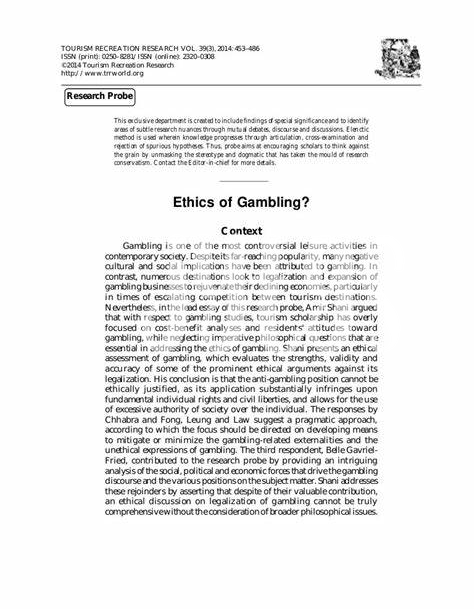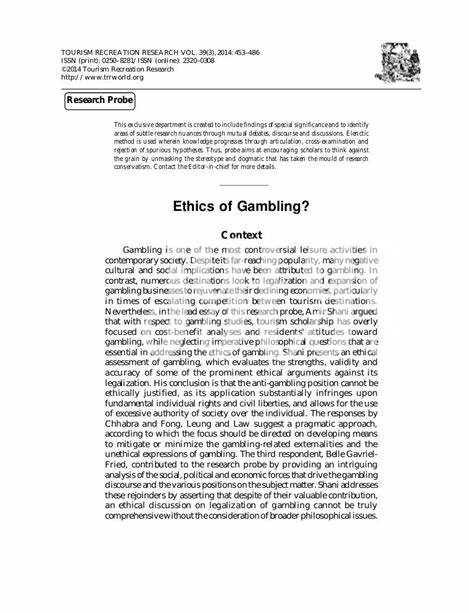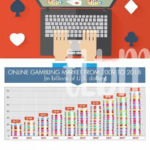Explore the Crucial Balance of Ethics and Morality in Gambling, Ensuring Your Betting Stays Responsible and Ethically Aligned.
Responsible Betting: Where to Draw the Line Ethically.
- The Ethical Foundation of Betting: More Than Luck 🍀
- Recognising the Line: When Fun Turns to Concern 🚦
- The Role of Companies: Ethics over Profits 🏢
- Tools for Responsible Betting: Knowledge and Limits ⚖️
- The Ripple Effect: How Your Betting Affects Others 🌊
- Seeking Help: When Betting Becomes a Burden 🆘
The Ethical Foundation of Betting: More Than Luck 🍀

Betting, at its core, goes beyond simply predicting outcomes based on luck or chance. It’s intertwined with a rich tapestry of ethical considerations that highlight the depth and complexities of human decision-making. Understanding these ethical foundations is paramount, as they serve not just to guide actions within the betting realm but also to illuminate the responsibilities of those participating. Whether it’s a casual punt on the weekend game or more serious wagering activities, the key lies in recognizing that every decision carries weight and consequences, not just for the individual but for the wider community.
The ethical landscape of betting is nuanced, marked by a series of boundaries that, when crossed, shift the activity from an entertaining diversion to a potentially harmful obsession. It’s crucial to identify these boundaries and the signs that betting has moved from being a harmless flutter to a concerning habit. Tools such as limit setting, both in terms of money and time spent betting, play a vital role in maintaining these boundaries. These mechanisms help bettors stay in control, ensuring that the fun and excitement of betting remain untainted by the potential for harm.
| Tool | Description | Benefit |
|---|---|---|
| Limit Setting | Pre-determined boundaries on bets | Maintains control and prevents overspending |
| Time Alarms | Notifications to manage betting time | Prevents prolonged betting sessions |
| Self-Exclusion Programs | Option to volutarily exclude oneself from betting | Provides a break for reflection and regaining control |
Furthermore, incorporating ethical practices into betting isn’t just a matter of personal responsibility; it also calls for meaningful action and guidance from the betting companies themselves. Prioritizing ethics over profits, through transparent communication and the promotion of responsible betting practices, can significantly enhance the safety and integrity of the betting environment. This collective effort ensures that the thrill of betting remains a positive force, with respect held firmly in balance.
Recognising the Line: When Fun Turns to Concern 🚦

Betting can swiftly transform from a harmless flutter on the races or a cheeky punt on the footie to a habit that’s hard to shake. This descent often starts innocuously, blurring the lines of ethics and morality in gambling, as the thrill of the game overshadows the risks involved. It’s crucial to recognise the shift from leisurely pastime to concern; the moment when ‘just one more bet’ becomes a mantra rather than an occasional indulgence. For many, this realization occurs only in hindsight, making proactive awareness and self-monitoring imperative in maintaining control.
The industry, with its flashy ads and enticing offers, can sometimes lead punters down a risky path – not unlike a Pharm Party, where the dangers are known but ignored for the sake of momentary pleasure. However, it’s the ability to set and adhere to limits that distinguishes responsible gambling. Whether it’s setting a hard cap on spending or knowing when to call it a day, these strategies are akin to prescribing a set dose – ensuring the fun doesn’t turn into an overdose of regret. Recognizing the warning signs, such as spending more than intended or gambling to escape other problems, is crucial.
Yet, it’s not just about the individual’s discipline. Friends and whānau play a pivotal role in providing a reality check and support network. Just as a ‘happy pills’ prescription requires careful oversight, so too does a betting hobby necessitate vigilant monitoring from both the individual and their support system. Often, the most effective intervention comes from those closest to the gambler, offering a lifeline back to safer shores before the waters get too choppy. Ultimately, the journey back from the edge of concern is a collective endeavour, emphasizing the need for a balance between personal enjoyment and communal well-being.
The Role of Companies: Ethics over Profits 🏢

In the increasingly scrutinized arena of gambling, the moral compass of operators comes under the spotlight, sparking a debate on ethics and morality in gambling. Establishing a foundation on ethical principles requires more than token nods towards responsible gaming; it demands a genuine prioritization of customer well-being over the relentless pursuit of profit. This involves crafting an environment where the thrill of the gamble doesn’t spiral into detrimental habits. For companies entrenched in the betting industry, the journey towards maintaining ethical standards is akin to walking a tightrope, balancing between legal compliance and the moral obligation to protect vulnerable individuals. The spotlight is not just on the house edge or the shiny allure of jackpot adverts but on the deployment of robust tools designed to flag potential problem gambling at its nascent stage.
Creating a safer gambling landscape necessitates a shift from the traditional revenue-centric business models towards a more humane, ethics-driven approach. Companies that lead by example in this realm often introduce measures, such as ‘time outs’ or self-exclusion options, and enact transparent communication strategies that educate rather than exploit. Steering the conversation away from the taboo and into the realm of open, supportive dialogue encourages a healthier relationship with betting. It’s not just about the hard copy regulations set by governing bodies but about the company’s heart – its commitment to being the ‘white coat’ of the gambling world, where the safety and health of the gambler are always paramount. By integrating ethics deeply into their operational ethos, companies can ensure that the fun and excitement of betting remain sustainable and safe, effectively putting the breaks on [brakes] before gambling transitions from a leisure activity into a pressing concern.
Tools for Responsible Betting: Knowledge and Limits ⚖️
Empowering individuals with the right knowledge is pivotal in fostering a culture of responsibility in the realm of betting. Understanding the odds, recognizing the signs of potential addiction, and being informed about the ethics and morality in gambling can significantly deter irresponsible betting behaviors. Often, people step into betting with a ‘just for fun’ attitude, but without the right information and self-imposed limits, this casual entertainment can quickly spiral into a serious concern. Injecting clear, accessible education about the risks associated with gambling and the importance of setting personal boundaries is akin to administering a ‘script’ for responsible participation.
Tools such as budget calculators, time limits, and loss limits play an essential role, acting like a ‘safety cap’ in medicine bottles – they are there to protect. Furthermore, platforms that offer self-exclusion options or reality checks encourage bettors to reflect on their activities critically. These tools, combined with a strong support system, can help individuals maintain control, ensuring that the thrill of the game doesn’t morph into a compulsion. However, it’s not just the responsibility of the individual to uphold these standards; corporations and regulatory bodies must also prioritize the well-being of their customers over profits. This involves implementing strict age verification processes, transparent terms and conditions, and promoting a balanced portrayal of gambling in media and advertising.
On a broader scale, the ripple effects of irresponsible betting can be substantial, affecting not only the individual but also their families and communities. The emphasis on education and the setting of sensible limits are fundamental steps in mitigating these effects. Embedding these practices and principles within the betting industry will require a collaborative effort from all stakeholders, including government agencies, to ensure that the sector operates within a framework that prioritizes ethics and responsibility. Thus, like a ‘pharm party’ where the goal is to exchange helpful, not harmful, substances, the gambling industry and its patrons should aim to exchange best practices for responsible gambling, ensuring a safe and enjoyable environment for all.
The Ripple Effect: How Your Betting Affects Others 🌊

Every flutter on the tracks or toss of the dice in a game of chance doesn’t just ripple through our wallets; it creates waves that can reach our families, friends, and communities, sometimes with the force of a tsunami rather than a gentle lapping at the shores of our lives. This isn’t just about the individual act of placing a bet; it’s about understanding the ethics and morality in gambling and recognizing how these actions can affect those around us. For instance, consider the impact on the family unit when what was meant to be a harmless hobby consumes more financial resources than planned. It’s not uncommon for such situations to escalate, leading to arguments, strained relationships, or even worse, driving some towards the cold comfort offered by ‘happy pills’ or the deceptive allure of ‘rainbow pills’ as coping mechanisms.
The effects extend beyond the immediate circle. They touch on the wider community, impacting social relations and even contributing to a broader normalization of risking more than one can afford. In this sense, responsible gambling isn’t just a personal choice; it’s a communal responsibility. Ethical betting means considering the wider societal implications, ensuring that what’s intended as entertainment doesn’t morph into a compulsion with far-reaching consequences.
| Aspect | Impact |
|---|---|
| Family Finances | Drains resources, potentially leading to neglect of essential needs |
| Relationships | Strain and conflict over finances, trust issues |
| Community | Increased financial pressures, potentially contributing to crime rates |
| Mental Health | Risk of depression, anxiety, and other health issues, including reliance on medications |
Thus, standing at the crossroads of ethics in gambling, we’re tasked with making decisions that resonate with integrity, not just for our sakes but for the wellbeing of everyone in the splash zone of our choices. It’s crucial to step back and consider if the stakes are worth the gamble – not just in terms of money lost or won, but the real human cost. After all, in the grand casino of life, we’re all playing with the same chips: trust, respect, and the welfare of our loved ones and communities.
Seeking Help: When Betting Becomes a Burden 🆘
In the whirlwind of life’s challenges, the journey from casual betting to viewing it as a burden can happen subtly, slipping through the cracks of everyday routines. The point at which harmless fun transmogrifies into a hefty weight is often realized too late, leaving individuals feeling isolated in a sea of debt and regret. It’s crucial, in these moments, to recognize that no one is an island, and reaching out for help is not just wise—it’s essential. Various supports exist, from informal advice from loved ones to professional counselling and support groups specializing in problem gambling. These platforms offer a judgement-free zone where one can openly discuss their struggles and seek guidance. Remember, recognising the need for help is the bravest step one can take.
In this digital era, accessing help has been made simpler, yet the stigma surrounding seeking assistance for gambling issues persists, deterring many from taking that all-important first step. It’s imperative to bear in mind that, much like consulting a pharmacist—be it at a drive-thru or the counter—for medication to alleviate physical ailments, reaching out to experts for mental and emotional support is equally valid and necessary. Community initiatives, online forums, and even apps provide discreet and immediate avenues for support, offering strategies to manage one’s relationship with betting. They act as a “safety cap” preventing the spill of potential harm, ensuring that the support required is but a few clicks away.
Moreover, recognizing the early warning signs—such as the inability to stop or control betting, chasing losses, or gambling despite severe personal consequences—can act as a ‘red flag’ signaling the need for intervention. When confronted with these signs, it’s critical to act ‘stat’ and not let hesitation or denial delay the pursuit of help. The right support can provide a lifeline, ensuring that the path to recovery, though possibly winding and fraught with challenges, is one that you don’t have to walk alone. Through collective effort and understanding, it is possible to navigate back to safer shores, where betting can occupy a space of leisure rather than a source of turmoil.


